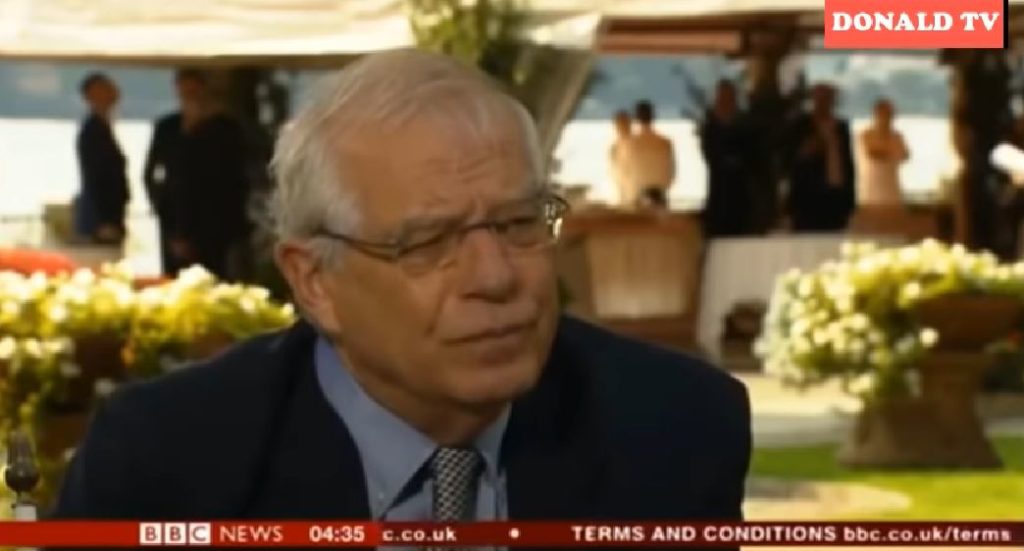18.10.2018 - 20:42
|
Actualització: 18.10.2018 - 22:42
For the first time in the history of the European Union’s construction a member state has taken diplomatic reprisals against another. Spain’s allegedly progressive government has revoked the diplomatic status of the Flemish government’s representative to Spain.
Gestures are very important in diplomacy. They can be measured on a scale from less to moreserious. A verbal protest would rank at the very bottom. A protest in writing would be the next levelup. Summoning a foreign ambassador is level three. A step up is to summon your own ambassador. Revoking a foreign diplomat’s credentials or physically shutting down the foreign embassy precedes the two most serious measures that might be taken: recalling your own ambassador and replacing them with a chargé d’affaires and, eventually, breaking off all diplomatic relations. All by itself, the Spanish government has created a level five crisis on a scale of seven. This is an unprecedented, unheard of situation.
It is unprecedented, indeed, as well as veryrevealing. Spanish foreign minister Josep Borrell has taken this step in order to punish the president of the Flemish parliament following his words in support of democracy and the rights of Catalonia’s persecuted political leaders. Not only does Borrell’s move threaten free speech, but it mocks separation of powers. It is not the first time. The Spanish government had already tried to persuade the Belgian authorities to freeze the legal proceedings against the Spanish judge who has unlawfully sent the Catalan government to jail. Needless to say, the government of Belgium replied by reminding Madrid that the executive branch cannot give orders to the judiciary, unlike in Spain, as we all know. This sort of thing does not happen outside Spain, in well-established democracies.
It is equally unheard of that the Spanish government should scorn the Flemish representatives by thinking that theirs is merely “a regional government”. I am not quite sure whether they just don’t know how Belgian diplomacy works, but I am certain that they don’t know how a true federal country works and the sort of loyalties it maintains. On this point there is much that Spain could learn from Belgium.
The job of Belgium’s foreign policy is shared equally among the three regional governments plus the federal authorities, who liaise about it but have each a free hand. None of the four governments involved is allowed to force anything on the other three. Once again, Spain’s gestures in this case reveal its authoritarian nature and its aversion to a federal system. Our readers will recall how there was outrage in Spain when “a regional court of law” (Germany’s Supreme Court of Schleswig-Holstein) ruled that president Puigdemont could not be prosecuted for the crimes that Spain —with the help of a farcical indictment— was trying to pin on him and his government. As with Belgium now, back then Spain didn’t realise —or refused to understand— that Germany’s Constitutional Court is not a single institution located in the nation’s capital, but the Bundesgericht as a whole, as established in Article 92 of the constitution: it encompasses the federal constitutional court (located in Karlsruhe, by the way, not in Berlin) as well as the regional courts, the constitutional court of every land.
The crisis unleashed by Josep Borrell has a European angle that mustn’t be overlooked. Spain is an eccentric country when it comes to Europe’s democratic practice and that should provide food for thought to Europe as a whole, not just to us. Spain keeps political prisoners, criminalises the right to vote, scorns separation of powers, uses state violence against its citizens, meddles with the market —as it’s been proven they did on October 2 last year when they tried to bring down the Catalan banks—, has failed to dispose of Francoism and does not respect the decisions made by institutions of other member states within the EU.
At a time when Europe rightly alarmed by the rise of fascism and the emergence of so-called “illiberal democracies” in Hungary, Poland and even in Italy, Spain should also be in their crosshairs. Impervious to embarrassment, Mr Borrell’s incompetence might ultimately work in our favour. The Catalan people are terribly disappointed with the European institutions, not because they didn’t stand up for Catalonia’s independence, but because they failed to defend the civil rights of Catalans against the Spanish government’s aggression. We should expect nothing from the EU. But at the same time we have witnessed how many European countries have firmly opposed Madrid’s outrageous demands and have voiced their concern over everything that is going on inour nation. Belgium is an example of that. Josep Borrell, a horrendous politician further weakened today by the corruption scandal while he worked in Abengoa, has triggered the crisis in the heart of Brussels. Let’s hope that this helps to explain a little better that Spain is a hazard, not merely for Catalans, but for Europeans as a whole.


